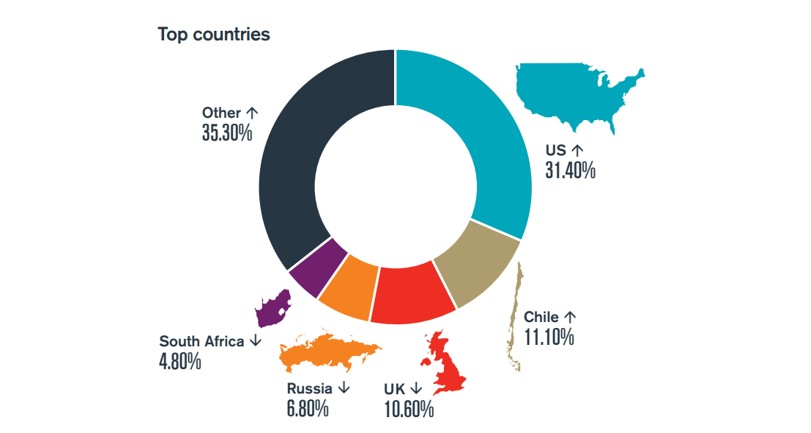Disruption within the global supply chain continues to drive up the risk of cargo theft.
The ongoing impacts of the pandemic, variable consumer demand trends, labour disputes and the Ukraine war all continue to undermine supply chain continuity, with congestion at ports, mis-matches in the availability of transport equipment and ships in relation to demand all consequences of this volatile environment.
According to TT Club’s latest Supply Chain Bulletin, electrical goods are the biggest target for cargo theft globally, with the US reporting over 70% of these losses. The split in general between theft from vehicles and depots is in the order of two-thirds versus one-third. This is a consistent finding; though vehicles ‘at rest’ as opposed to hijackings are more prevalent targets.
The insider threat also presents challenges, according to the analysis, with around 23% of reported cargo thefts likely involved insider activity, whether it is in facilitating intricate knowledge of systems and security provisions or simply allowing access to criminals.
Digital solutions to enhance the free-flow of goods within a disruptive supply chain environment, however well designed, is a further trend which can give rise to internet-enabled fraud. Computer generated access is creating opportunities to steal cargo through seemingly legitimate transactions.
“At this time, it would be prudent for those throughout the international supply chain to heighten their levels of awareness and increase their vigilance when carrying out financial transactions,” said Mike Yarwood, TT’s managing director of loss prevention. "The insider threat clearly also needs to be managed. Security strategies should include control over identification badges/passes and restricting full site access where applicable."
TT’s bulletin also highlights the power of social media as a means of investigation; and the threat imposed by fake carriers in Europe.
Chart: Top countries for cargo theft (Source: TT Club)
Printed Copy:
Would you also like to receive CIR Magazine in print?
Data Use:
We will also send you our free daily email newsletters and other relevant communications, which you can opt out of at any time. Thank you.











YOU MIGHT ALSO LIKE